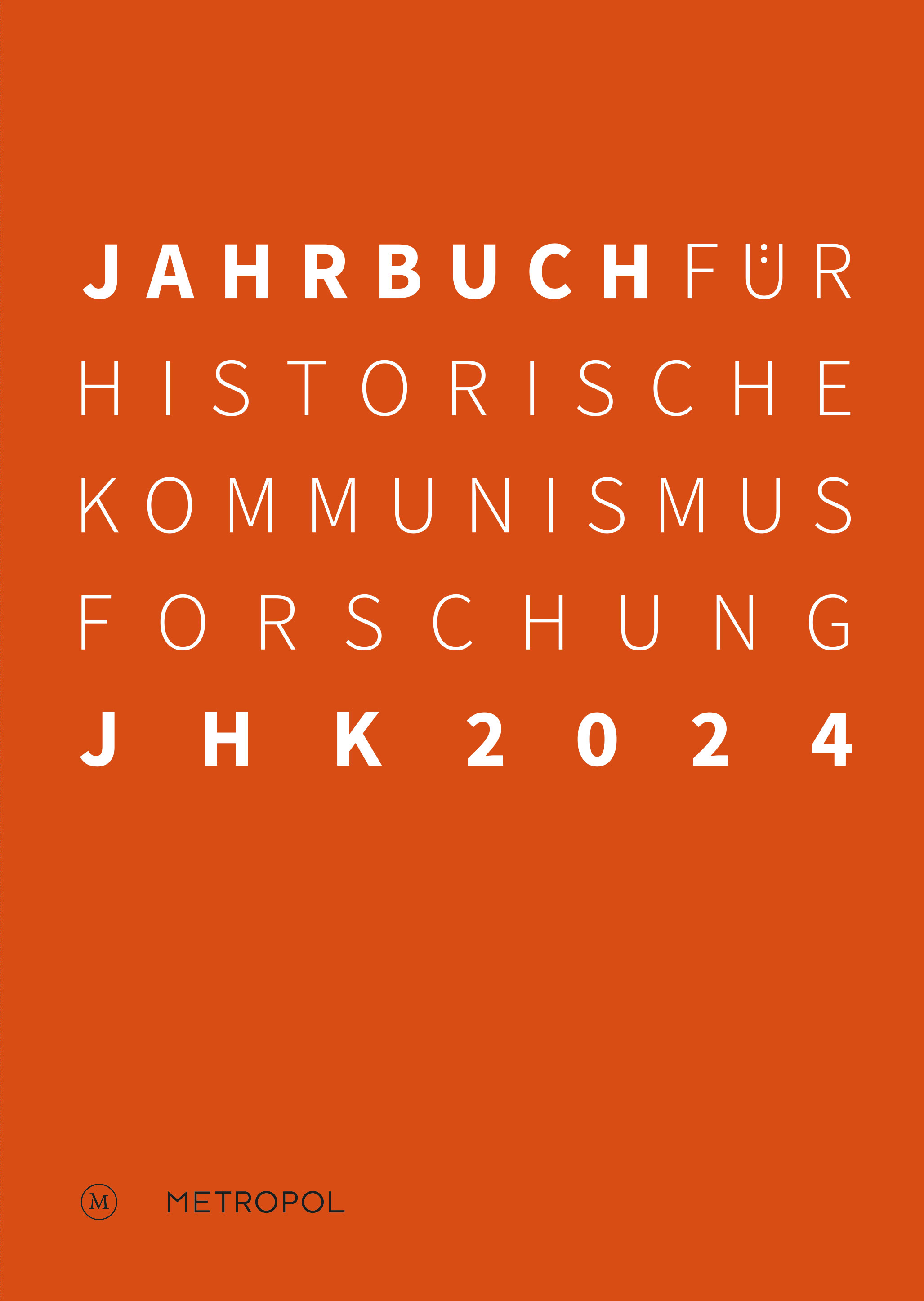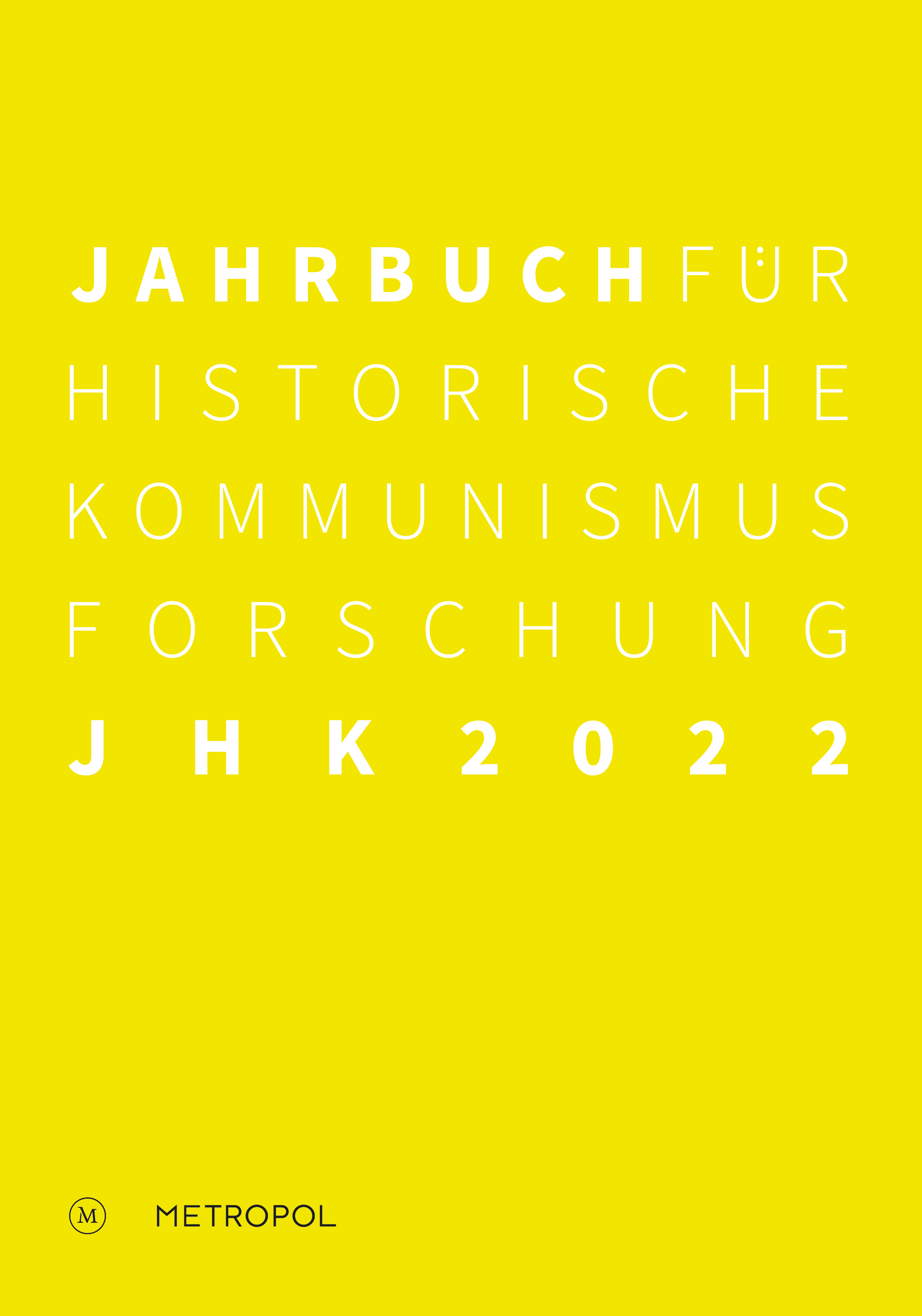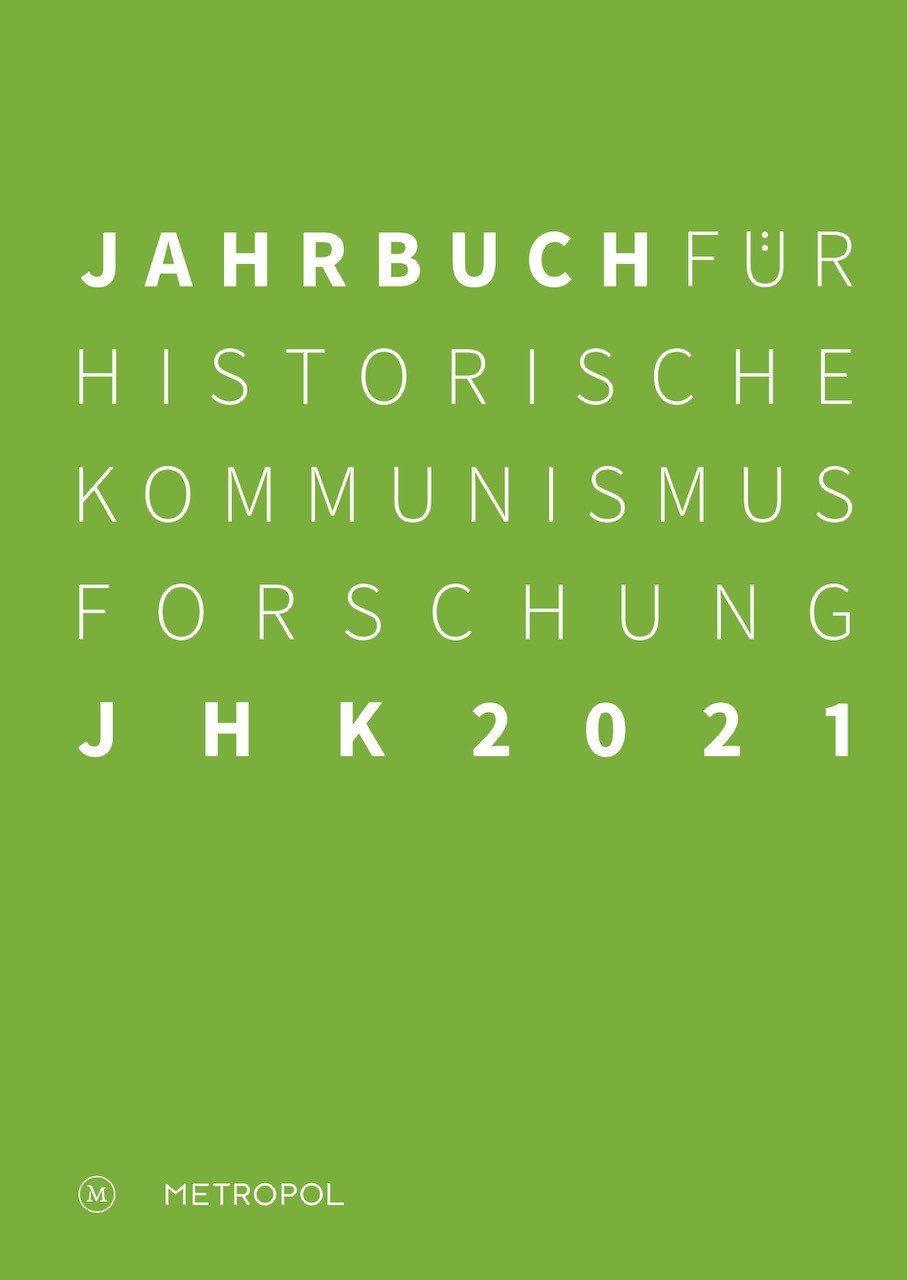Abstract
Oksana Nagornaia/Tatjana Raeva: Stalins »Kulturattachés«. Sowjetische Kulturdiplomatie im beginnenden Kalten Krieg, in: Jahrbuch für Historische Kommunismusforschung 2023. Berlin: Metropol Verlag, pp. 45–60.
For the Soviet 'cultural carriers' of late Stalinism and the early Thaw Period, the system of foreign policy representation of the USSR became a means of achieving an honorable mission and gaining additional privileges by fostering the illusion of creative internationalism. At the same time, the willingness to work for 'USSR propaganda' meant being constantly exposed to direct and indirect pressure, a grueling marathon of events, and ideological and disciplinary constraints. The ambivalent character of the Soviet system of cultural diplomacy intensified after the dictator's death with the beginning of a relative liberalization of domestic policy and a so-called "cultural offensive" to the outside world. On the one hand, the end of mass terror and repression led to the elimination of the structuring factor of fear. On the other hand, the resistance of the system normalized institutional violence by de-privatizing all aspects of the lives of the 'cultural attachés', depriving them of their creativity in the name of their peacemaking mission and forcing them to disseminate ideologemes on the international arena. However, an analysis of the first-person documents of Stalinist writers that shaped the specific transnational Soviet subjectivity suggests that the formulation of Soviet foreign policy propaganda, so much criticized by the cultural attachés themselves, was in fact a joint effort of the system and its elite agents.
Über die Autorinnen
Dr. habil. Oksana Nagornaia, geb. 1977 in Tscheljabinsk. 2006 bis 2007 Wissenschaftliche Mitarbeiterin des Sonderforschungsbereichs »Kriegserfahrungen« an der Universität Tübingen. 2016 bis 2018 Leiterin eines wissenschaftlichen Projektes zur sowjetischen Kulturdiplomatie im Zeichen des Kalten Krieges. Seit 2018 Professorin an der Staatlichen Pädagogischen Universität Jaroslawl, wissenschaftliche Leiterin des Masterprogramms »Public History«. Veröffentlichungen u. a.: Sowjetische Kulturdiplomatie im Zeichen des Kalten Krieges (1945–1989), Moskau 2018 [auf Russisch erschienen]; Eine andere Kriegserfahrung: Russische Kriegsgefangene des Ersten Weltkriegs in Deutschland (1914–1922), Moskau 2010 [auf Russisch erschienen].
Dr. phil. Tatjana Raeva, geb. 1977 in Tscheljabinsk. Von 1994 bis 2000 Studium der Geschichte, 2004 Promotion. Seit 2000 Dozentin an der Süduralischen Staatlichen Universität. Von 2016 bis 2018 Wissenschaftliche Mitarbeiterin im Projekt zur sowjetischen Kulturdiplomatie im Zeichen des Kalten Krieges. Veröffentlichung u. a.: Sowjetische Kulturdiplomatie im Zeichen des Kalten Krieges (1945–1989), Moskau 2018 [auf Russisch erschienen].



